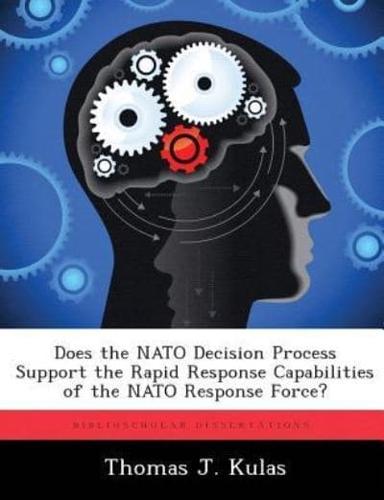Publisher's Synopsis
The end of the Cold War ushered in a new security environment, one that was more diverse, and more dynamic than the previous 50 years. In the years since the end of the Cold War, NATO has worked to transform its missions, streamline its military command and upgrade its capabilities. However, the political decision making process within NATO has stayed static, despite the changes and evolution in the security environment since the founding of the Alliance.The current decision-making process works well in clear-cut, controversy-free issues such as humanitarian efforts. While, NATO successfully activated the NATO Response Force (NRF) for the first time in response to the earthquake in Pakistan, it isn't clear that the decision process will work that well in a controversial crisis. While several proposals exist to transform the decision process, each has its weaknesses and there does not seem to be the political will to implement them. Additionally none of the proposals examined appear to decreases the process timeline.The speed with which NATO could respond to a crisis will remain dependent on political factors.












